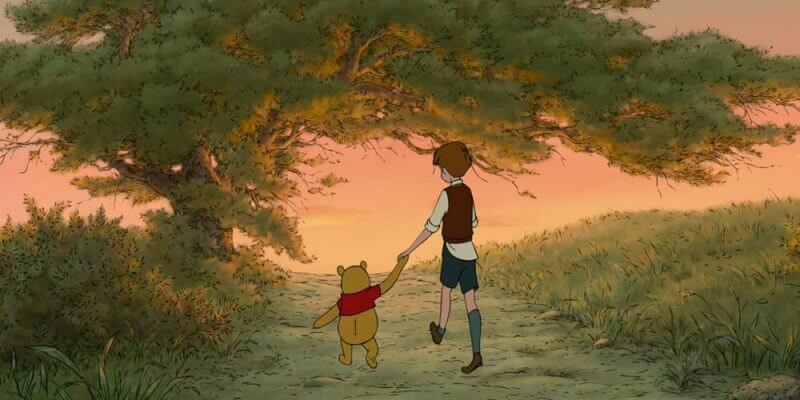 Recently I was browsing at our local second-hand bookshop and came across a small paperback by Anne Morrow Lindberg, called Gift from the Sea. The Lindberg name attracted me, and, yes, Anne was the wife of Charles Lindberg.* The book is a series of profound meditations on different seashells that Anne found on her retreats at the beach, often in a favourite island setting. Towards the end of the book, Anne reflects on her tendency on retreat to initially collect as many shells as possible, but then, as time goes by, she becomes more selective. She notices that one or two shells, surrounded by empty space, speak to her more deeply about their beauty and uniqueness than many shells clustered together. Similarly, she reflects, the retreat touches her so deeply because she has few activities, few demands, and lots of empty space. She goes on to say: Only in space are events and objects and people unique and significant – and therefore beautiful. A tree has significance if one sees it against the empty face of sky. A note in music gains significance from the silences on either side. A candle flowers in the space of night. Even small and casual things take on significance if they are washed in space, like a few autumn grasses in the corner of [a Japanese ink] painting, the rest of the page bare. This week is Holy Week. It is filled with significance for Christians, and it can be a very busy and cluttered time for churches and families. But may we find empty space to sit with the uniqueness and beauty of this time, both for ourselves, the world, and for all creation. May God, who seeks to bless us and the world through Jesus, bless you this Holy Week. Brian Holliday * Charles and Anne were both pioneer aviators, Charles famously flying the first solo trans-Atlantic flight in the Spirit of St Louis. Tragically, in 1932, their first child was mysteriously kidnapped and murdered.
0 Comments
Marcus Aurelius, a Roman Emperor and Stoic philosopher in the second century AD, wrote his third book of meditations at the fortress of Carnuntum on the Danube. You can still visit the ruins of the fort today. I feel sorry for Aurelius who spent much of his nineteen-year reign fighting Rome’s many frontier enemies. Yet, in spite of that, he is known as one of Rome’s five good emperors. The goodness of this Stoic, warrior man comes through his many reflections on the purpose of this life, which he sums up as three things; to do what’s right, to serve others, and to love God. He writes, for example:
Wash yourself clean. With simplicity, with humility, with indifference to everything except right and wrong. Care for other human beings. Follow God. And in another meditation; To move from one unselfish action to another with God in mind. I find it quite remarkable that this “pagan” philosopher in antiquity arrived at much the same conclusions as the preacher in Ecclesiastes, as Christ in the Gospels, and Paul in the Epistles. And today, in a year of pandemic, we, too, can find truth and goodness in focusing on doing what is right, in caring for other human beings, and in loving God. May God, who speaks to us all when we listen, bless you this week as we continue to journey through Lent. Brian Holliday Photo by Matthias Zomer from Pexels I find some of the thoughts in the Meditations of Marcus Aurelius quite profound. They make me reflect and think more deeply. Aurelius was a Stoic philosopher and an Emperor of Rome in the second century. Book 2 of his meditations was written around 170 AD on the Gran River, a tributary of the Danube, during a campaign against the Quadi, an invading Germanic tribe. In meditation 14, Aurelius reflects on the gift of the present moment, and I imagine him in his tent, weary and in his battle gear, thinking on the value of this fleeting life:
Even if you are going to live three thousand more years or ten times that, remember: you cannot lose another life than the one you are living now, or live another one than the one you are losing. The longest [life] amounts to the same as the shortest. The present is the same for everyone; its loss is the same for everyone, and it should be clear that a brief instant is all that is lost. For you cannot lose either the past or the future; how could you lose what you don’t have? Now, eighteen centuries later, the present moment is still all we have to embrace or lose. We can plan for the future or think about the past, but we cannot “possess” it. So, embrace this present moment, this gift of time, be in it with God and live it with all your heart. Brian Holliday Image by frankspandl from Pixabay This week I came across Rowan Williams’ book Meeting God in Mark. It a beautiful and profound meditation on Jesus’ miracles and teaching, and on the great lengths Jesus took to explain the true nature of God and God’s work in the world.
In his reflection, Williams describes how Jesus, before performing a miracle, stooped to interact with the sick and needy. He wanted to establish a genuine relationship with them, a relationship of trust. If there was no relationship of trust, Jesus didn’t perform a miracle. Then, surprisingly, Jesus often told them to tell no one! He didn’t want his message about God and God’s actions to be about miracles. Rather, Jesus’ persistent message was that God’s kingdom wasn’t coming through external power imposed on people from heaven, but it was coming from within, operating from the inside out. Look around you, said Jesus, in the every day, in the way crops grow in the field, the way seeds turn into giant trees, the way a child is born, and the way yeast causes dough to rise. God’s power acts quietly, mysteriously, out of sight, transforming from the inside out. As Williams puts it: How does God work? Subtly, slowly, from the very depth of being. Or steadily, irresistibly, like light reaching the corners of the room. [God] works outward from the heart of being into the life of the every day – not inwards from some distant heaven. This is how God works, [says Jesus,] and you ought to be able to see it in the world around you in the world God has created and rules. We just have to have eyes to see and hearts to trust. May you look around you this Lent, and notice everywhere the joy of God’s quiet, hidden, mysterious work, transforming from the inside out. May you also sense within you the stooping, loving Jesus, who gently seeks a deepening relationship with you. Brian Holliday Photo by Gary Barnes from Pexels (With an apology to those who have not read Winnie-the-Pooh.)
In 1996, Christopher Robin Milne, the only child of the author AA Milne, died. He was immortalized by his father in the stories of Winnie-the-Poo as the character Christopher Robin. On hearing the news, the poet Czeslaw Milosz wrote a piece about Christopher Robin from the perspective of Pooh Bear who was thinking about ‘matters too difficult for a bear of little brain.’ Christopher Robin had momentarily disappeared from the Hundred Acre Wood, so Pooh questions him when he comes back. Christopher Robin tells Pooh he had fallen into the well, and, as he fell deeper, he grew into to an adult, became very old, and finally died. Then he was back in the woods again with his friends, and he explains to Pooh: It was probably just a dream, quite unreal. The only real thing was you, old bear, and our shared fun. Now I won’t go anywhere, even if I’m called for an afternoon snack. What a lovely picture of heaven – after this very short life we live, it’s like returning to old friends as Christopher Robin did with Pooh Bear, Piglet and Eeyore in the Hundred Acre Woods. Czeslaw Milosz, who went through the horrors of the Second World War, often imagined heaven as a return to an idyllic childhood, a winding back of the pain and ruptures of adulthood to the innocence and carefree delight of childhood. It reminds me of Jesus’ words in Matthew 18: I’m telling you, once and for all, that unless you return to square one and start over like children, you’re not even going to get a look at the kingdom, let alone get in. Whoever becomes simple and elemental again, like this child, will rank high in God’s kingdom. What’s more, when you receive the childlike on my account, it’s the same as receiving me. (The Message) Jesus, my friend, is inviting me to take time to relax and share in his friendship with an innocent and carefree delight! May you, too, find space this week to relax and share a childlike delight in your friendship with Jesus. Brian Holliday |
AuthorSelected members of the Dayspring Community make contributions to this page on a regular basis. Archives
May 2023
Categories |

Dayspring acknowledges the role of First Nations people as the traditional custodians of the land on which Dayspring Events are held. Dayspring recognizes their unbroken continuing connection to land, water and community, their efforts to preserve and strengthen their culture and language and pays respects to elders past present and emerging who share in this work.
Except as permitted by the copyright law applicable to you, you may not reproduce or communicate any of the content on this website, including files downloadable from this website without the permission of the copyright owner.
EMAIL: [email protected]
© Dayspring Community (WA) Inc. 2023
Except as permitted by the copyright law applicable to you, you may not reproduce or communicate any of the content on this website, including files downloadable from this website without the permission of the copyright owner.
EMAIL: [email protected]
© Dayspring Community (WA) Inc. 2023
Proudly powered by Weebly





 RSS Feed
RSS Feed